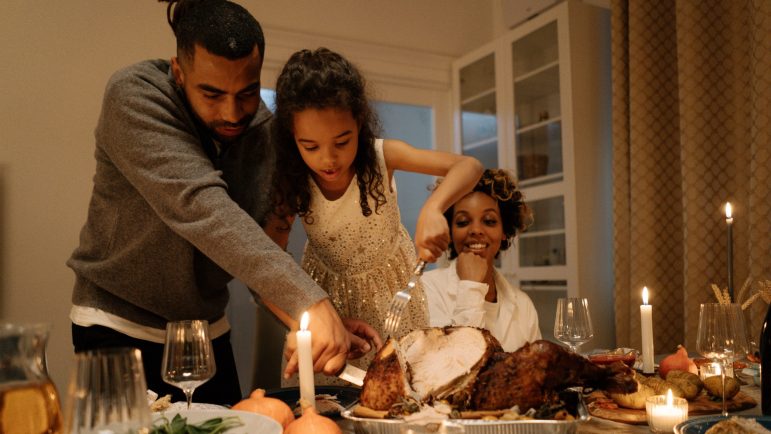With Thanksgiving dinner just around the corner, health officials across the Gulf South are urging residents to be mindful of COVID-19 precautions while also planning out their menus and activities.
After a deadly surge in COVID-19 cases brought on from the Delta variant, hospitalizations and COVID-19 cases are finally down across Alabama, Louisiana, and Mississippi. And unlike last holiday season, people as young as five years old are eligible to get a vaccine, with many also eligible for a booster shot.
States across the Gulf South, however, still have some of the lowest vaccination rates in the country for both adults and kids. That’s why health officials say the pandemic is far from over and are worried that there could be another potential surge in cases after Christmas, just as there was in January 2021.
Experts have suggested a few key recommendations to stay safe:
1. Consider getting vaccinated
COVID-19 is certainly less of a risk than it was a few months ago, but there is still a risk of transmission, said Dr. Joseph Kanter, Louisiana state health officer.
“Depending on who’s coming to your holiday gathering, they might be coming from a state that is surging right now, like we were surging a couple of months ago. And that would introduce risk,” Kanter said. “I think what families should do first is consider how they can make their gatherings safer. The first way they can do that is by encouraging everyone who’s there to get vaccinated if they are eligible to do so.”
Kanter said if some members of the family are still hesitant to get vaccinated, they can still follow COVID-19 safety precautions — like masking and social distancing.
“It’s always safer to do activities outside if you can,” he said. “If the weather’s nice, do it outside.”
2. Think about who will be at the table
Although vaccines are widely available and most people are eligible, some people — like kids under the age of five or people that are immunocompromised — might not have any or full protection.
Dr. Rachael Lee, with the Division of Infectious Diseases at the University of Alabama at Birmingham, said it’s important to think about who will be attending a family gathering.
“We likely have a lot of kids that have received their first dose, but they’re not going to be fully vaccinated yet. And there’s also people that may have immunocompromised loved ones, so we really want to be careful,” Lee said. “If you’re going to have a large gathering with multiple families, think about how you can protect those loved ones that are not fully vaccinated yet.”
Lee also recommends using the Centers for Disease Control and Prevention’s transmission tracker to see if COVID-19 rates are higher wherever people are traveling.
Considering how COVID transmission may affect loved ones also means rethinking certain activities. Black Friday shopping may not be a good idea for some people. Grocery stores might also be too crowded closer to Thanksgiving Day.
3. Avoid going to the ER if you can
Kanter said he’s not so worried about COVID-19 filling up hospitals during the holidays as much as before, but it’s better to avoid them if possible.
Emergency rooms are typically already stretched thin during this time, and they could be a source of transmission — especially as flu season ramps up. Care facilities such as a primary care clinic or an urgent care clinic are the better option if your ailments can be addressed there.
“Now with these staffing shortages, strains on hospitals could be amplified,” Kanter said. “I think the same general guidance as we’ve given before applies. If there’s a better venue to address your health issue other than an ER, it’s probably worth your while to do that.”
4. Have fun
Finally, health officials say the pandemic has been difficult for many families and the holidays are a time to reconnect.
It’s important to focus on having fun, while also being mindful of how to be safe.
This story was produced by the Gulf States Newsroom, a collaboration between Mississippi Public Broadcasting, WBHM in Birmingham, Alabama, WWNO in New Orleans and NPR.

